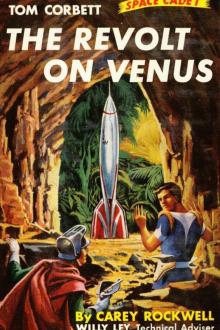Hypatia — or New Foes with an Old Face by Charles Kingsley (e book reader TXT) 📗

- Author: Charles Kingsley
Book online «Hypatia — or New Foes with an Old Face by Charles Kingsley (e book reader TXT) 📗». Author Charles Kingsley
‘Out of the way there, rascals! Place for the Prefect! What are you squabbling about here, you unmannerly monks?’ shouted peremptory voices from behind. The crowd parted, and disclosed the apparitors of Orestes, who followed in his robes of office.
A sudden hope flashed before Philammon, and in an instant he had burst through the mob, and was clinging to the Prefect’s chariot.
‘I am a free-born Athenian, whom these monks wish to kidnap back into slavery! I claim your protection!’
‘And you shall have it, right or wrong, my handsome fellow. By Heaven, you are much too good-looking to be made a monk of! What do you mean, you villains, by attempting to kidnap free men? Is it not enough for you to lock up every mad girl whom you can dupe, but you must—’
‘His master is here present, your Excellency, who will swear to the purchase.’
‘Or to anything else for the glory of God. Out of the way! And take care, you tall scoundrel, that I do not get a handle against you. You have been one of my marked men for many a month. Off!’
‘His master demands the rights of the law as a Roman citizen,’ said Peter, pushing forward Arsenius.
‘If he be a Roman citizen, let him come and make his claim at the tribune to-morrow, in legal form. But I would have you remember, ancient sir, that I shall require you to prove your citizenship before we proceed to the question of purchase.’
‘The law does not demand that,’ quoth Peter.
‘Knock that fellow down, apparitor!’ Whereat Peter vanished, and an ominous growl rose from the mob of monks.
‘What am I to do, most noble sir?’ said Philammon.
‘Whatever you like, till the third hour to-morrow—if you are fool enough to appear at the tribune. If you will take my advice’ you will knock down these fellows right and left, and run for your life.’ And Orestes drove on.
Philammon saw that it was his only chance, and did so; and in another minute he found himself rushing headlong into the archway of Pelagia’s house, with a dozen monks at his heels. As luck would have it, the outer gates, at which the Goths had just entered, were still open; but the inner ones which led into the court beyond were fast. He tried them, but in vain. There was an open door in the wall on his right: he rushed through it, into a long range of stables, and into the arms of Wulf and Smid, who were unsaddling and feeding, like true warriors, their own horses.
‘Souls of my fathers!’ shouted Smid, ‘here’s our young monk come back! What brings you here head over heels in this way, young curly-pate?’
‘Save me from those wretches!’ pointing to the monks, who were peeping into the doorway.
Wulf seemed to understand it all in a moment; for, snatching up a heavy whip, he rushed at the foe, and with a few tremendous strokes cleared the doorway, and shut-to the door.
Philammon was going to explain and thank, but Smid stopped his mouth.
‘Never mind, young one, you are our guest now. Come in, and you shall be as welcome as ever. See what comes of running away from us at first.’
‘You do not seem to have benefited much by leaving me for the monks,’ said old Wulf. ‘Come in by the inner door. Smid! go and turn those monks out of the gateway.’
But the mob, after battering the door for a few minutes, had yielded to the agonised entreaties of Peter, who assured them that if those incarnate fiends once broke out upon them, they would not leave a Christian alive in Alexandria. So it was agreed to leave a few to watch for Philammon’s coming out; and the rest, balked of their prey, turned the tide of their wrath against the Prefect, and rejoined the mass of their party, who were still hanging round his chariot, ready for mischief.
In vain the hapless shepherd of the people attempted to drive on. The apparitors were frightened and hung back; and without their help it was impossible to force the horses through the mass of tossing arms and beards in front. The matter was evidently growing serious.
‘The bitterest ruffians in all Nitria, your Excellency,’ whispered one of the guards, with a pale face; ‘and two hundred of them at the least. The very same set, I will be sworn, who nearly murdered Dioscuros.’
‘If you will not allow me to proceed, my holy brethren,’ said Orestes, trying to look collected, ‘perhaps it will not be contrary to the canons of the Church if I turn back. Leave the horses’ heads alone. Why, in God’s name, what do you want?’
‘Do you fancy we have forgotten Hieracas?’ cried a voice from the rear; and at that name, yell upon yell arose, till the mob, gaining courage from its own noise, burst out into open threats. ‘Revenge for the blessed martyr Hieracas!’ ‘Revenge for the wrongs of the Church!’ ‘Down with the friend of Heathens, Jews, and Barbarians!’ ‘Down with the favourite of Hypatia!’ ‘Tyrant!’ ‘Butcher!’ And the last epithet so smote the delicate fancy of the crowd, that a general cry arose of ‘Kill the butcher!’ and one furious monk attempted to clamber into the chariot. An apparitor tore him down, and was dragged to the ground in his turn. The monks closed in. The guards, finding the enemy number ten to their one, threw down their weapons in a panic, and vanished; and in another minute the hopes of Hypatia and the gods would have been lost for ever, and Alexandria robbed of the blessing of being ruled by the most finished gentleman south of the Mediterranean, had it not been for unexpected succour; of which it will be time enough, considering who and what is in danger, to speak in a future chapter.
CHAPTER XVII: A STRAY GLEAM
THE last blue headland of Sardinia was fading fast on the north-west horizon, and a steady breeze bore before it innumerable ships, the wrecks of Heraclian’s armament, plunging and tossing impatiently in their desperate homeward race toward the coast of Africa. Far and wide, under a sky of cloudless blue, the white sails glittered on the glittering sea, as gaily now, above their loads of shame and disappointment terror and pain, as when, but one short month before, they bore with them only wild hopes and gallant daring. Who can calculate the sum of misery in that hapless flight?.... And yet it was but one, and that one of the least known and most trivial, of the tragedies of that age of woe; one petty death-spasm among the unnumbered throes which were shaking to dissolution the Babylon of the West. Her time had come. Even as Saint John beheld her in his vision, by agony after agony, she was rotting to her well-earned doom. Tyrannising it luxuriously over all nations, she had sat upon the mystic beast—building her power on the brute animal appetites of her dupes and slaves: but she had duped herself even more than them. She was finding out by bitter lessons that





Comments (0)